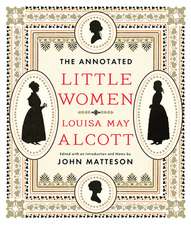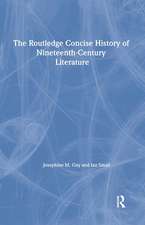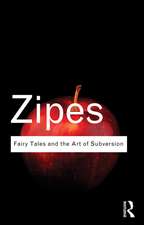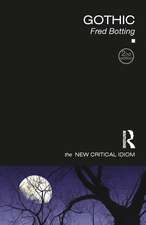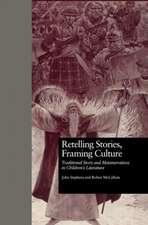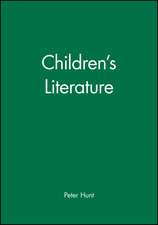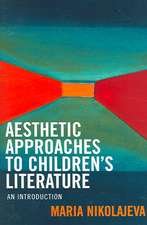Routledge Library Editions: Social & Cultural Geography: Routledge Library Editions: Social and Cultural Geography
Autor Variousen Limba Engleză Hardback – 4 dec 2013
Din seria Routledge Library Editions: Social and Cultural Geography
-
 Preț: 416.22 lei
Preț: 416.22 lei -
 Preț: 436.14 lei
Preț: 436.14 lei - 18%
 Preț: 259.98 lei
Preț: 259.98 lei -
 Preț: 436.14 lei
Preț: 436.14 lei -
 Preț: 416.22 lei
Preț: 416.22 lei -
 Preț: 284.52 lei
Preț: 284.52 lei -
 Preț: 284.52 lei
Preț: 284.52 lei -
 Preț: 416.22 lei
Preț: 416.22 lei -
 Preț: 278.13 lei
Preț: 278.13 lei -
 Preț: 284.52 lei
Preț: 284.52 lei -
 Preț: 416.22 lei
Preț: 416.22 lei -
 Preț: 417.96 lei
Preț: 417.96 lei -
 Preț: 416.22 lei
Preț: 416.22 lei -
 Preț: 416.22 lei
Preț: 416.22 lei -
 Preț: 436.14 lei
Preț: 436.14 lei
Preț: 5166.14 lei
Preț vechi: 7724.36 lei
-33% Nou
Puncte Express: 7749
Preț estimativ în valută:
988.57€ • 1035.58$ • 819.28£
988.57€ • 1035.58$ • 819.28£
Comandă specială
Livrare economică 19 martie-02 aprilie
Doresc să fiu notificat când acest titlu va fi disponibil:
Se trimite...
Preluare comenzi: 021 569.72.76
Specificații
ISBN-13: 9780415834476
ISBN-10: 0415834473
Pagini: 4304
Dimensiuni: 156 x 234 mm
Greutate: 8.41 kg
Ediția:1
Editura: Taylor & Francis
Colecția Routledge
Seria Routledge Library Editions: Social and Cultural Geography
Locul publicării:Oxford, United Kingdom
ISBN-10: 0415834473
Pagini: 4304
Dimensiuni: 156 x 234 mm
Greutate: 8.41 kg
Ediția:1
Editura: Taylor & Francis
Colecția Routledge
Seria Routledge Library Editions: Social and Cultural Geography
Locul publicării:Oxford, United Kingdom
Public țintă
General, Postgraduate, Professional, and UndergraduateCuprins
1. The Power of Place 2. The Makers of Modern Geography 3. The Geography of Crime 4. The Geography of the National Health 5. The Social Geography of Medicine and Health 6. The Future of Geography 7. Geography Since the Second World War 8. Regional Geography 9. Remaking Human Geography 10. The Changing Nature of Geography 11. The Scope of Geography 12. David Harvey's Geography 13. Humanistic Geography and Literature 14. The Power of Geography 15.Humanistic Geography
Notă biografică
Multivolume collection by leading authors in the field
Descriere
Re-issuing books originally published between 1969 and 1990 this set of 15 volumes gives a 20 year perspective on the development of the discipline of social geography. The books emphasize the increasingly important contribution of geographical theory to the understanding of social change, values, economic and political organization and ethical imperatives. The volumes are authored by well-known international geographers and discuss the philosophy and sociology of geography as well as key themes such as the geography of health, crime, space. They also examine the cross-over of geography with other disciplines, such as literature and history.
Recenzii
“The timely re-issue of the prescient Ethnoscapes series provides an invaluable contribution to current concerns about built and natural environments. The breadth of coverage of these books, includes public participation in environmental modifications, the impact of housing design on the quality of life, cross-cultural comparisons of placemaking, and the role of building aesthetics on well-being, across many countries and contexts adds up to a treasure trove of innovative research. Now more than ever we need the benefit of the insights and findings of these scholars and professional (many of course who are both) who, over three decades, have studied crucial aspects of interactions between people and their surroundings.”
Ricardo García Mira, Professor of Social Psychology, University of A Coruna, Galicia, Spain. Former Spanish MP.
“The reissued volumes in the Ethnoscapes series were ground- breaking when they first appeared and remain fresh today. These books are essential for understanding how design and the use of space has cultural and human meaning that “artificial intelligence” could never achieve. They offer a vital and timely antidote to mind-numbing apology for the appropriation of civic space and corporate reproduction of McMansions and shopping malls.”
Ben Wisner, Honorary Visiting Professor, University College London, UK.
“The physical aspects of our wonderfully complex world combine with social and psychological factors, to give a myriad of joys and sorrows accompanying our lifeworld activities. To make existence manageable, we need to find order within such chaos. As researchers of all types, but especially social scientists, we are driven to identify networks of causes and effects. This series provides excellent examples of such writing, concerning natural and built environments, from a host of scholars, representing a range of disciplines.”
Andrew Turk, Adjunct Associate Professor, Murdoch University, Western Australia.
“People interested and concerned about how we are interacting with and shaping our built and natural environments will find the insights and findings in this re-issued Ethnoscapes series of great value. Over more than 30 years this accumulated cornucopia of research reveals how important it is to understand the meanings and significance of many aspects of human- environment transactions. These include studies of user involvement in design, with its implications for place-making, as well as crucial explorations of the meaning of home and the role of environmental aesthetics for our wellbeing. Every volume opens new doors, often being the forerunners to major areas of study.”
Arza Churchman, Professor Emerita at Technion- Israel Institute of Technology, Haifa, Israel.
“The re-issue of the Ethnoscapes series provides everyone who cares about human-environment studies a wonderful opportunity to re-acquaint themselves with many groundbreaking efforts in the field. The series provides a wide range of explorations by researchers who have helped to make sense of persons in interaction with their surroundings, and contributed to inspired placemaking”.
Robert Gifford, Professor of Psychology and Environmental Studies, University of Victoria, British Columbia, Canada.
Ricardo García Mira, Professor of Social Psychology, University of A Coruna, Galicia, Spain. Former Spanish MP.
“The reissued volumes in the Ethnoscapes series were ground- breaking when they first appeared and remain fresh today. These books are essential for understanding how design and the use of space has cultural and human meaning that “artificial intelligence” could never achieve. They offer a vital and timely antidote to mind-numbing apology for the appropriation of civic space and corporate reproduction of McMansions and shopping malls.”
Ben Wisner, Honorary Visiting Professor, University College London, UK.
“The physical aspects of our wonderfully complex world combine with social and psychological factors, to give a myriad of joys and sorrows accompanying our lifeworld activities. To make existence manageable, we need to find order within such chaos. As researchers of all types, but especially social scientists, we are driven to identify networks of causes and effects. This series provides excellent examples of such writing, concerning natural and built environments, from a host of scholars, representing a range of disciplines.”
Andrew Turk, Adjunct Associate Professor, Murdoch University, Western Australia.
“People interested and concerned about how we are interacting with and shaping our built and natural environments will find the insights and findings in this re-issued Ethnoscapes series of great value. Over more than 30 years this accumulated cornucopia of research reveals how important it is to understand the meanings and significance of many aspects of human- environment transactions. These include studies of user involvement in design, with its implications for place-making, as well as crucial explorations of the meaning of home and the role of environmental aesthetics for our wellbeing. Every volume opens new doors, often being the forerunners to major areas of study.”
Arza Churchman, Professor Emerita at Technion- Israel Institute of Technology, Haifa, Israel.
“The re-issue of the Ethnoscapes series provides everyone who cares about human-environment studies a wonderful opportunity to re-acquaint themselves with many groundbreaking efforts in the field. The series provides a wide range of explorations by researchers who have helped to make sense of persons in interaction with their surroundings, and contributed to inspired placemaking”.
Robert Gifford, Professor of Psychology and Environmental Studies, University of Victoria, British Columbia, Canada.



